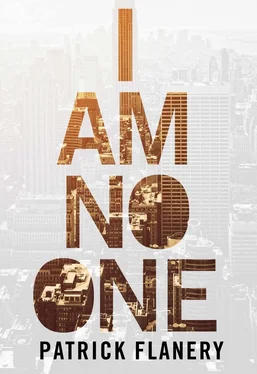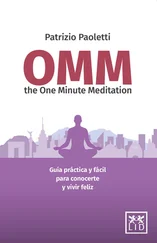‘Excuse me, could I borrow your phone?’ says a man, and before I turn, I know it will be Michael Ramsey.
I pat my pockets and realize I have left the new phone at home. ‘No such luck.’
‘Smart man,’ he says, and nods at the movie poster. ‘We could see it together, ditch the party.’
‘A chance to talk?’
‘Something like that.’
‘You going to tell me what’s going on?’
He arches an eyebrow but says nothing, and then, as we walk to the Century Building, he draws closer to me. ‘There are some people in this world who just gather information. They don’t deal in consequences. But let’s imagine that one of the information gatherers — let’s call him the archivist — noticed a name he recognized in the course of his work, say it’s the name of one of the archivist’s former teachers, maybe someone who taught him in high school or college, and in seeing the teacher’s name, memories of the man begin to return and the archivist becomes interested, he wants to know why his old teacher’s name is being flagged, and so he starts looking more closely at the activity he can see.’
We arrive at the side door, announce ourselves, enter the elevator and ascend alone. ‘The more the archivist looks at what his teacher has been doing, the way he’s been living his life, and remember he can see just about everything, from spending patterns to travel to the kind of things his teacher has been buying with a credit or debit card, the more the archivist becomes convinced there is no real reason to be watching the teacher, but he knows, he can see, how other people might disagree and perhaps he even knows, this archivist, that other people, people who push the buttons that make the archivist do what he does every day, are in the process of disagreeing, very actively disagreeing, that the people around and above him are getting ready to act, assembling a case, drawing conclusions on the basis of association and little else. You understand what I’m saying?’
‘And if the teacher became aware of what might be happening, and, say, consulted lawyers, and the lawyers did not seem to think there was any great need for concern?’
‘Maybe the teacher has the wrong lawyers,’ he says, looking ahead at the elevator doors, his mouth scarcely moving.
‘So what should the teacher do in such a situation?’
‘Let’s say, for the sake of argument—’ he pushes the button for the top floor of the building, ‘—that the teacher has a family connection to one of the most powerful media figures in the country. Perhaps it’s a relative by marriage, a brother-in-law or son-in-law. And that relative could be persuaded to run a story, put the teacher on the cover, exposing all his warts for the world to see, turning over all the evidence that might be in his possession for the public themselves to peruse. When the public looks at this teacher, they’ll see a mirror of their own lives. The teacher is ordinary. Sure, maybe he lived outside the country for a period of time, and that puts him in a minority, but otherwise he is a completely ordinary American whose life is no longer private.’
‘It sounds too simple.’ We arrive at the highest floor, the doors open, and we stand for a moment looking out at the empty hallway before Michael presses the button to take us down to Meredith and Peter’s floor.
‘Simple is elegant. Simple is effective. To do it properly, you understand, the teacher would have to let strangers read absolutely everything that might have been revealed to him, no matter how embarrassing, and even then some: turn over every document in his possession, all of his papers, files, notes, publications, everything he has ever written, every photograph. He knows he’s done nothing illegal and obliterating his own privacy is a way to prove this to the authorities, but also to make a point to the whole country.’
‘It could make the teacher’s life impossible. He might be asked to resign his position.’
‘He has wealthy relatives. Money is no concern. He will be taken care of no matter what happens. How many people are in such a position? How many Americans can risk sacrificing their career and their privacy to make a point that people like the archivist believe has to be made but are too afraid, too precarious, to make themselves? The archivist is just a drone inside the system. It’s one thing for a guy like him to tell people what’s happening. It would be easy to call him a traitor and dismiss every allegation he makes.’
‘And then put him in prison.’
‘Exactly. Or force him into exile. But have a man like the teacher come forward, and it begins to look much more personal, more preposterous, but also more horrifying. People could relate to it, and in coming forward the teacher would also be protecting himself.’
‘And if the teacher could not bring himself to do this?’
‘The alternative is a country that looks nothing like the country we imagine we live in. A country without privacy is a country without freedom. The archivist does not want to live in that country. And if the teacher doesn’t go public he makes himself disposable. Easily discredited, easily disappeared.’
‘They wouldn’t do that to American citizens.’
‘Don’t be naïve.’
The elevator opens and we turn, walking together down the hall to my daughter’s door. Meredith appears before we can knock, standing in the threshold smiling.
Everything I do is predictable. I can go nowhere and do nothing without being followed — or worse, anticipated.
My mother is already there and before I can say anything further to Mr. Ramsey, she draws me aside.
‘Meredith’s friends are only interested in one another. They never ask me any questions about myself. It’s impossible to have a really meaningful conversation with them. All they want to talk about is business and I just find that all so empty and pointless . No one wants to talk about art or music or books, none of them care about anything unless they can buy it and watch it increase in value and then be able to sell it again. I sometimes wonder how you could have let Meredith marry into such a group of people.’
‘She married Peter, not the people around him.’
‘It’s the same thing. Can’t you see that? It’s the same goddamn thing, Jeremy.’
‘Have you had any more phone calls?’
‘I get phone calls every day. Dozens of them. I’m on that Do Not Call list and they still call me. I had a woman saying she was from some computer company and there was a problem with my security and if I didn’t give her access to my desktop — some kind of remote control thing — then I’d be opening myself up to being hacked, and I said I’m not doing anything over the phone, and she said, well then prepare to be hacked and hung up. I was so upset!’
‘You shouldn’t believe anyone who calls anymore. But remember you had a call over Thanksgiving weekend from someone who was slandering me.’
‘Oh. . him . Yeah, he still calls. He never stopped. He always says more or less the same thing, but I think he’s a nut. Is he some student you failed?’
‘Are you sure it’s always the same person?’
‘Oh yes. Fruity accent, neither British nor American, and I know him the moment he calls because there’s always this slight clicking delay before he starts talking. I tell him to stop calling but he just keeps going on and on and I tell him Jeremy’s nothing like what you say he is, and anyway if you’ve got a child with some Egyptian that’s your business.’
‘So Meredith told you.’
‘Of course she told me. Why didn’t you tell me the truth when I asked?’
‘Shame, I guess.’
‘But that’s just stupid. Am I ever going to meet the kid? I feel a pain about it.’
Читать дальше












